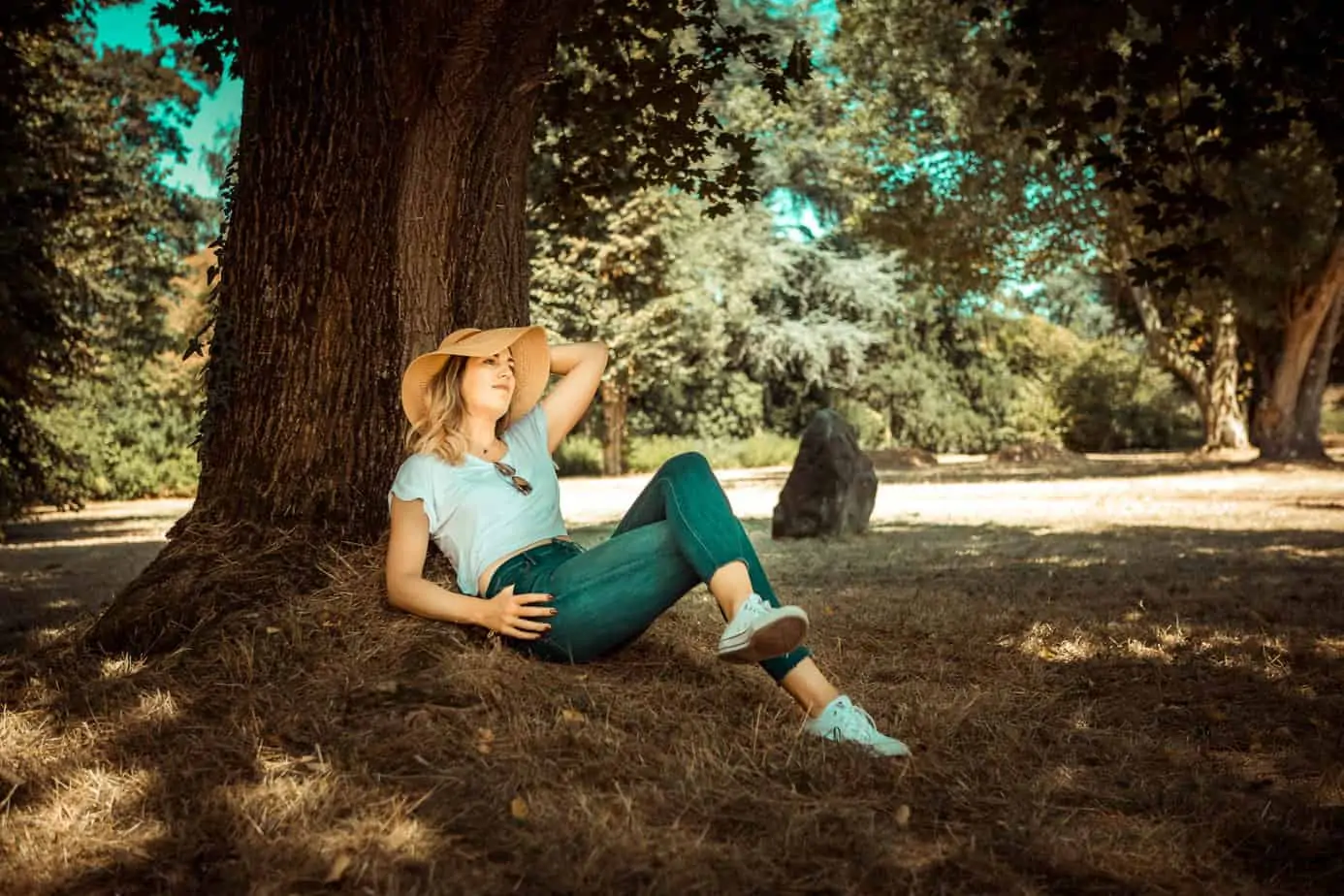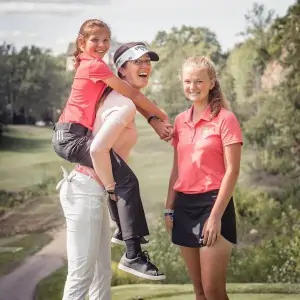Professional golfer and environmental protection – is that possible?
Sandra Gal is Germany’s most internationally renowned female professional golfer. Born in Düsseldorf, she played on the LPGA Tour since 2008, won the Kia Classic there in 2011 and was part of Europe’s Solheim Cup team twice. For years she has been increasingly concerned with meditation, nutrition and environmental protection. Due to an injury, she had to take a longer break from playing in 2019.
You’ve been playing on the LPGA Tour since 2008. The topic of sustainability is gaining momentum in golf. From a players point of view: To what extent has professional sport become more sustainable, are there really efforts to change something?
Gal: I think you’re trying to do something. But this is going very slowly and is very tedious. There are very few approaches to the tournaments, although there are sometimes problems with the implementation. For example, we as players, discussed the topic of water bottles among ourselves. There are very few women who bring their own bottle to the court, simply because we have a relatively high level of chlorine in the water in America. In addition, there is also the danger when setting up larger containers that water can be polluted. A lot of things are not that easy to implement legally.
You fly tens of thousands of miles a year for work – to what extent does a professional golfer even have the opportunity to live her sustainability approach?
Gal: Yes, it’s a difficult subject, even for me personally. I would like to be much more involved, but on the other hand, because of my job, I have the feeling that I am labelled as a frequent flyer anyway. On the other hand, I think that everyone can try to do what is within their means. For me personally, avoiding animal products and reducing plastic consumption are very important issues for environmental protection.
The men’s British Open last year was free of plastic bottles – do you know of a comparable project in the women’s professional field, or does the topic of plastic remain a consistently high problem in professional sports.
Gal: No, unfortunately, I don’t know anything. Plastic remains a huge topic because a lot of plastic tableware is still used on the US Tour.
As a German in the USA on a tour that includes many Asian women, you have a very international view of the scene: Does the attitude towards the issue of nature and environmental protection in professional sports change regionally, is it a consistently strong issue or is it just an individual thing pronounced?
Gal: I feel that the Europeans pay the most attention to that. There are also certain groups in the USA that are very active. On the West Coast this is a much bigger issue. There are also many small companies that deal with the topic of “waste free”. In general, based on my experience of travelling a lot, I would say that Asia is lagging behind, and Europe is the most committed.
Has your approach to nature and sustainability changed in recent years?
Gal: A lot has changed for me: A long journey started for me, when I started dealing with veganism five or six years ago. It started out as a purely ethical decision and then became a broader preoccupation with environmental issues.
Sandra Gal at one of her charity events
Golf is a sport that is extremely determined by nature – have you found a different approach to the topic of “sport in nature” over the years, or do professional athletes only perceive the natural factor as a backdrop?
Gal: No, I’m always very, very aware of nature. Perceiving this beauty of a place has always been very important to me. Also easy to switch off between shots. I also play better in places that I like and have a certain vibe in terms of nature.
You have been very active in the areas of yoga and meditation for a long time – can golf as a sport in nature provide at least a rudimentary similar relaxation?
Gal: Meditation really just means being in the here and now. Being “there” without judging. This has also become a lifelong task for me, regardless of what I do. In the tournament, however, it is still a special challenge, whereby you recognize the meditative quality when you get into the “flow”.
In a situation like a lockdown, where you cannot decide or influence anything yourself, does meditation help?
Gal: Yeah, I’m trying to deepen that right now because you can’t control things right now. This is very similar to what happens in golf in a micro form – you can plan and visualize each shot, but you still don’t know what’s happening.
Gender equality and the promotion of women’s sport is a major topic in the sustainability debate, including in golf. Have you been actively involved with many young girls in golf through the Walk with Sandra program in the US?
Gal: The Walk with Sandra program grew out of a program in America that promoted girls golf. The percentage of little girls playing golf in America is growing exponentially. In general, I think it would be nice in professional golf if we had more tournaments where we could play together with the men. In tennis you’ve come a long way. There the women get the same prize money as the men since the Grand Slams were merged. There is still a lot that can be done here and we are working on it.
Golf course architecture is increasingly talking about “gender-free” tees – can the golf scene get used to it?
Gal:. In the USA, as everywhere, there is a colour distinction at the tees. In the meantime, it often happens that, for example, older men go to the front and the games are mixed with the women. I actually think that’s very good.
Golf is an extreme solo sport: after all these years on the tour, does the question arise as to what a professional can achieve with a lasting effect, for example with a foundation?
Gal: Yes, definitely. I actually asked myself very quickly why I was doing all this. Playing up front is all well and good, but what’s the deeper meaning? Is there more to it than entertaining the audience, working with the sponsors and earning my living? That’s how my foundation came about. In addition, you can of course also achieve a lot via social media.
The Sandra Gal Foundation is dedicated to children and young people under the age of 18 – why this target group?
Gal: I feel like I was very privileged as a kid in what I could do. I had access to many different hobbies and was able to try out a lot. But there are a lot of children who don’t even have the opportunity to test what they enjoy and where their talent lies. I think it’s really nice that I now have the opportunity to give at least some children this opportunity.
Interview: Petra Himmel; Photos: Tobias Kegler









